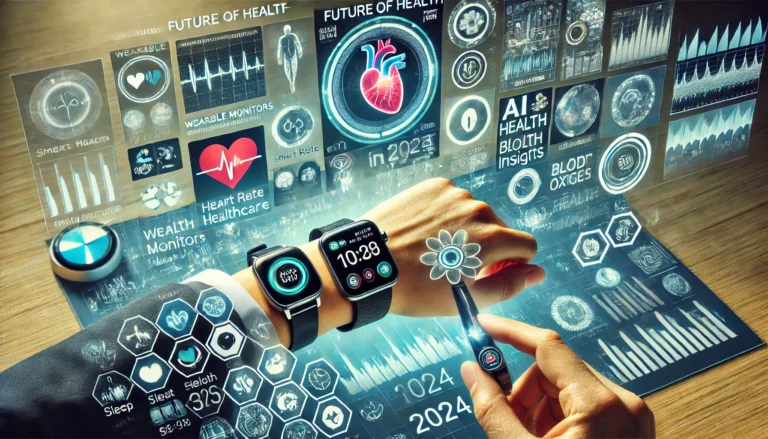Wearable health monitors have become a significant part of the healthcare landscape, evolving rapidly with advances in technology. These devices, ranging from smartwatches to specialized medical monitors, are increasingly integrated into daily life, providing continuous health data and transforming how we manage personal health. In 2024, wearable health monitors are not just a trend; they are a crucial tool in preventive healthcare, chronic disease management, and personalized health insights.
The Evolution of Wearable Health Monitors
Wearable health monitors have evolved from basic step counters to sophisticated devices that can track a wide array of physiological metrics. Modern wearables can monitor heart rate, blood pressure, blood oxygen levels, sleep patterns, and even blood glucose levels. These devices are equipped with advanced sensors that collect data in real time, which is then analyzed by AI algorithms to provide actionable health insights. The integration of AI is particularly significant as it allows for the early detection of potential health issues, enabling users to take preventive measures before problems escalate.
Impact on Preventive Healthcare
One of the most significant impacts of wearable health monitors is their role in preventive healthcare. By continuously monitoring vital signs and other health metrics, these devices help users stay informed about their health status. For instance, a smartwatch that tracks heart rate variability can alert the user to potential cardiac issues, prompting them to seek medical attention before a serious event occurs. This shift towards real-time monitoring and early detection is crucial in reducing the burden of chronic diseases, which are often more manageable when detected early.
Personalized Health Insights
Wearable health monitors are also driving a shift towards personalized healthcare. The data collected by these devices can be tailored to the individual’s health profile, providing customized recommendations for diet, exercise, and lifestyle changes. For example, a wearable device that tracks blood glucose levels can provide personalized dietary advice for individuals with diabetes, helping them manage their condition more effectively. The ability to personalize health insights based on continuous data is a powerful tool in improving health outcomes and empowering individuals to take control of their health.
Integration with Healthcare Systems
Another critical development in 2024 is the integration of wearable health monitors with healthcare systems. Many devices now come with features that allow users to share their health data directly with healthcare providers. This integration facilitates more informed clinical decisions, as doctors can monitor patients’ health metrics over time and adjust treatment plans accordingly. The real-time data provided by wearables can also be used in telemedicine, allowing for remote monitoring and consultations, which is particularly beneficial for patients in rural or underserved areas.
Challenges and Future Directions
Despite the many benefits, there are challenges associated with wearable health monitors. Privacy concerns are at the forefront, as the continuous collection of health data raises questions about data security and consent. Additionally, there is the issue of data accuracy; while wearable technology has improved significantly, it is not infallible, and incorrect readings can lead to misdiagnosis or inappropriate treatment recommendations. As technology continues to advance, addressing these challenges will be crucial in ensuring that wearable health monitors are both safe and effective.
Looking Ahead
The future of wearable health monitors is promising. Advances in nanotechnology and AI are expected to lead to even more sophisticated devices that can monitor a broader range of health metrics with greater accuracy. The integration of wearable health monitors into the broader healthcare ecosystem will likely continue, making personalized, preventive healthcare more accessible to everyone.
Conclusion:
Wearable health monitors are revolutionizing how we approach health and wellness. By providing continuous, real-time data, these devices empower individuals to take control of their health and facilitate more informed healthcare decisions. As technology continues to evolve, wearable health monitors will likely become even more integral to our daily lives, driving significant improvements in health outcomes worldwide.

